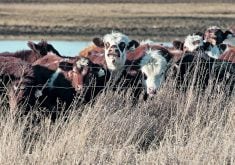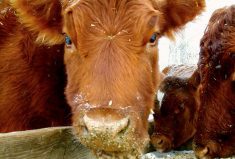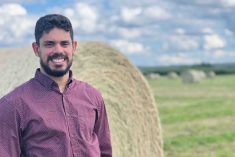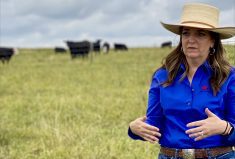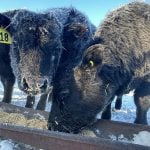Worried by the prospect of losing rising young stars, the Beef Cattle Research Council is reaching out with a mentorship program that matches scientists new to the Canadian cattle scene with industry vets.
“We want to take researchers with great technical skills and make sure they stay within our industry,” said Andrea Brocklebank, executive director of the Beef Cattle Research Council.
The program is a response to the fact that many researchers don’t necessarily come from an agricultural background, or are from overseas and lack familiarity with Canadian production.
By pairing them with people who can introduce them to producers and key players in the Canadian cattle industry, the young researchers will gain a better understanding of issues they might address in their work.
- More from Alberta Farmer Express: Study on dark cutters aimed at boosting the bottom line

“For a researcher who is not familiar, it might not be that easy to get access to cow-calf producers and feedlots, and actually go out to the production systems and be exposed to them,” said Brocklebank.
It’s also hoped this will lead to researchers doing more extension work and encourage them to share their research findings more widely.
Knowing the specific needs of the Canadian industry and being mentored by someone who understands the ins and outs of writing research proposals can also be key in obtaining funding.
“We are really working to ensure the success of young researchers,” said Brocklebank.
With baby boomers starting to retire, competition for young researchers is heating up, and many are being lured away by private companies or moving to the U.S., she noted.
Three young researchers, one in each of the Prairie provinces, have been selected for the one-year pilot.
“These are individuals who we want to continue researching in Canada,” said Brocklebank.
Originally from Spain, Raquel Rodriquez Doce is a veterinarian with a background in ruminant nutrition. She is a post-doctoral fellow at Agriculture and Agri-Food Canada’s Lacombe Research Station, working with Vern Baron on the development of cereal forage crops for improved utilization in cattle operations.

Bill Biligetu grew up as a nomadic herder in Inner Mongolia, which is where he met Bruce Coulman, one of the last forage crop breeders left in Canada. Coulman encouraged Biligetu to pursue degrees at the University of Inner Mongolia and later at the University of Saskatchewan, where he is now an assistant professor in forage crop breeding.
Emma McGeough, who hails from Ireland, is an assistant professor in the department of animal sciences at the University of Manitoba. McGeough grew up on a mixed beef and dairy farm, and is working on a number of projects, ranging from forage evaluation to an assessment of the environment footprint of Canada’s beef industry.
The three participants were recommended by industry specialists, and will be helping the Beef Cattle Research Council improve its pilot program. All three participants have extensive contacts in their countries of origin, and knowledge of production systems abroad, which will be beneficial to the Canadian cattle industry.
Read Also
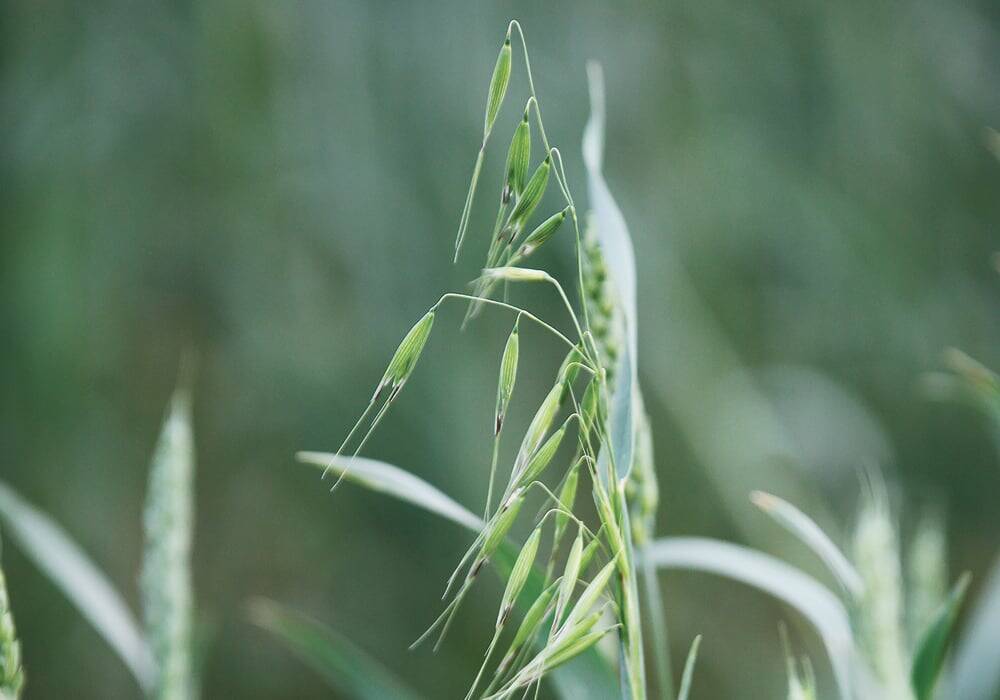
Think beyond the herbicide jug when dealing with wild oats
Wild oats are notoriously hard to manage, but one precision ag specialist offers some tips to growers.
Their mentors will be announced this month.




